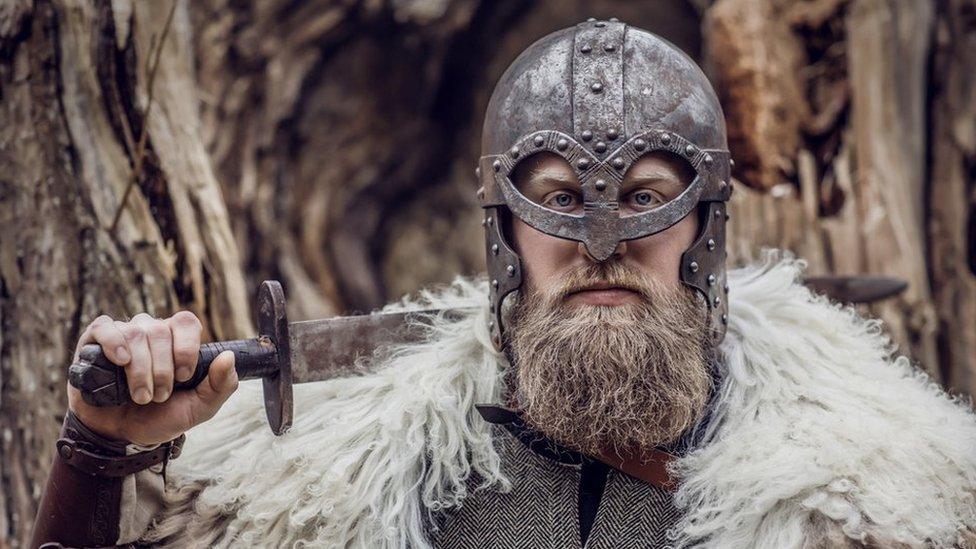UK Viking Archaeology: Rare combs and other finds in Ipswich collection
- Published
- comments
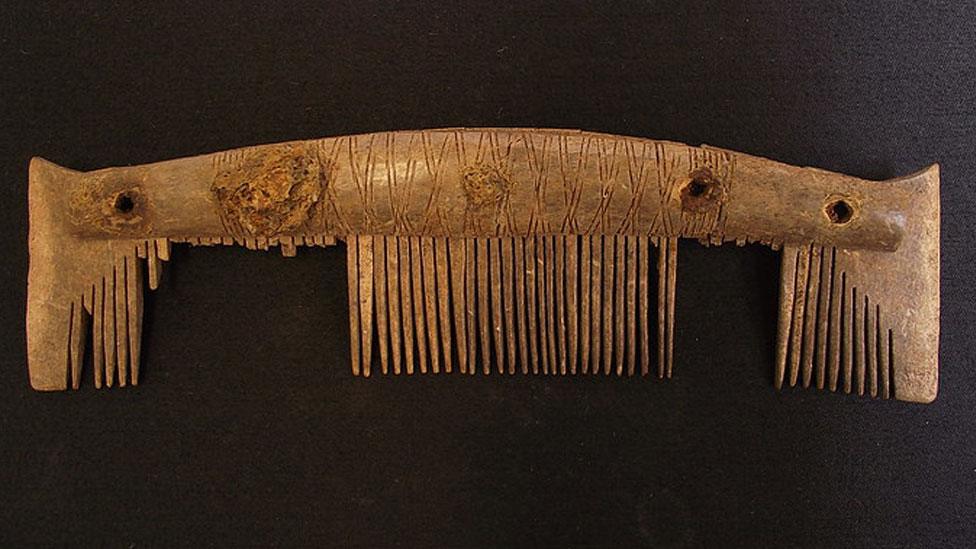
Most of the combs were made from red deer antler, but some were made from whale bone
A huge collection of Viking combs unearthed in Ipswich is "extraordinary and unique in the UK", according to experts.
Archaeologists found a number of exciting things which pointed to Ipswich being a part of Viking life in the 9th century.
They found combs which are made from fragments of red deer antler and whale bone.
Experts looking into the past also discovered things like pins and game pieces - reflecting Viking enthusiasm for board games.
Why is this an important collection?
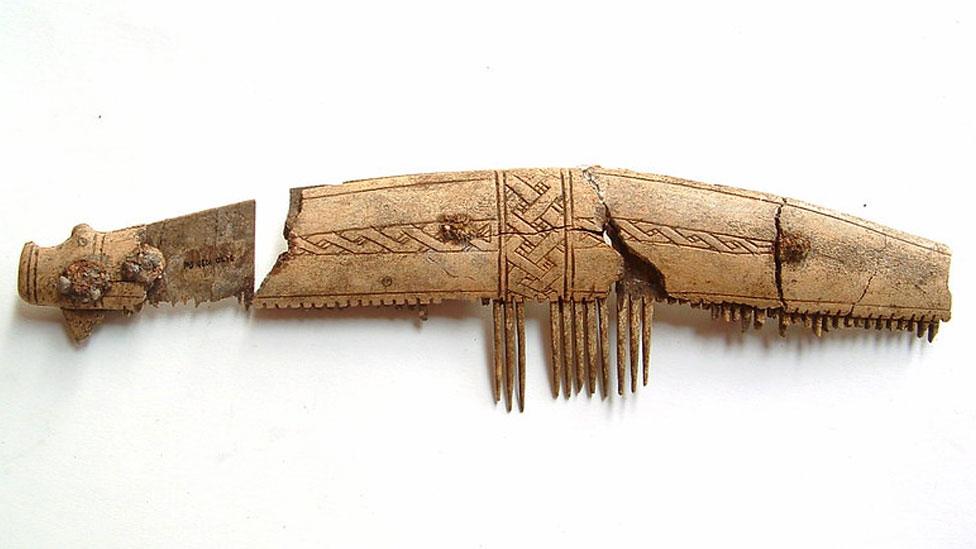
Many were from other countries, revealing Ipswich's trading links to parts of France, the Netherlands, Germany and Denmark
The Vikings lived over 1,000 years ago.
They were from Scandinavia, you might know it better as Norway, Sweden and Denmark.
They were great explorers and sailed the seas to bring home goods like silks and spices.
Their arrival played an important part in how the British Isles developed
This collection was discovered over the course of 20 years.
Experts could tell many of the combs were made in Scandinavia, but the find indicated the presence of Vikings in Ipswich.
Archaeologists Ian Riddler and Nicola Trzaska-Nartowski said they included "an extraordinary sequence of Viking combs unmatched elsewhere in the country" and show the presence of Vikings in Ipswich in the late 9th Century.
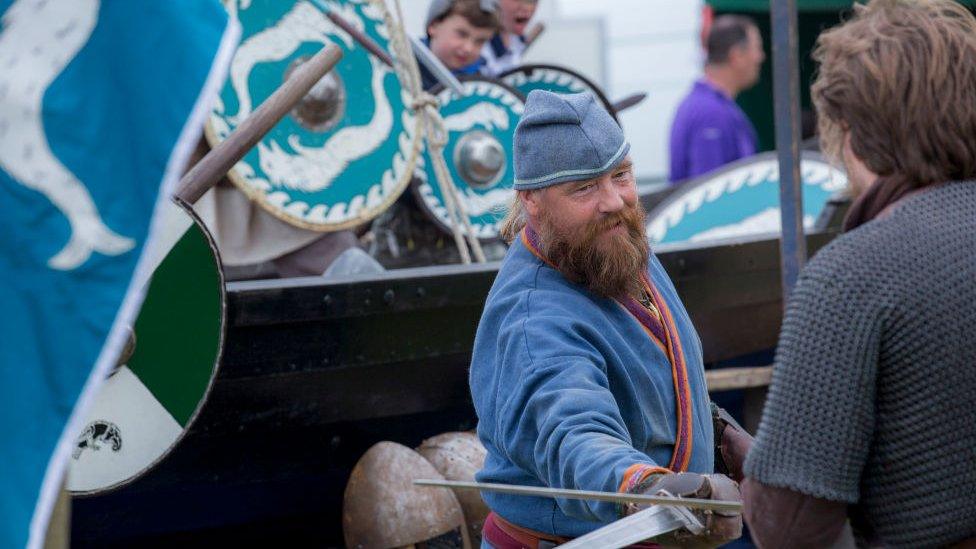
A Viking re-enactment battle during the Suffolk Show in Ipswich
Ipswich was founded as an Anglo-Saxon trading port after the Romans left Britain, and it fell under Viking rule in AD869.
The number of items found in 40 digs meant they could build up a convincing picture of the role Ipswich would have played in medieval life.
Will Fletcher, from Historic England, said "It's a "fascinating insight into Ipswich's medieval history... and its reach across the North Sea."
- Published10 March 2023
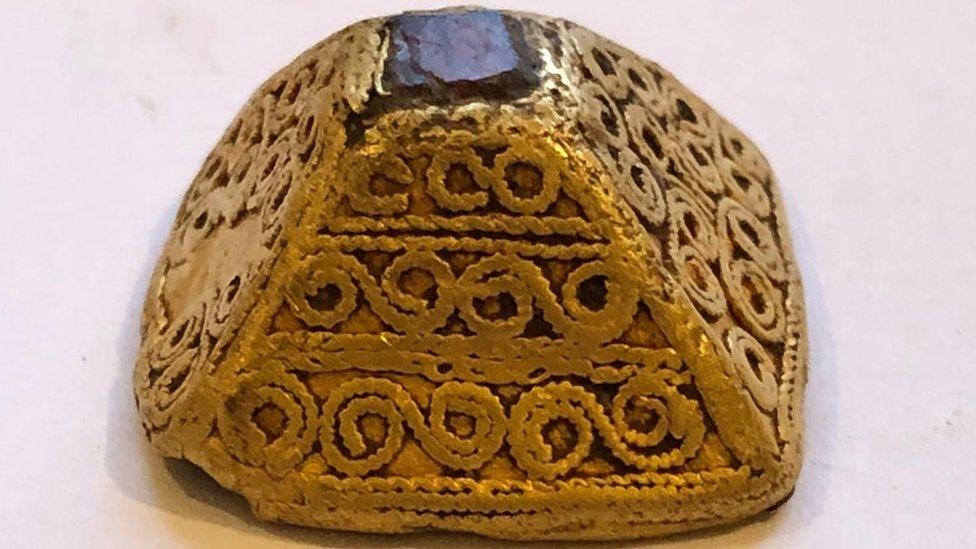
- Published28 June 2020
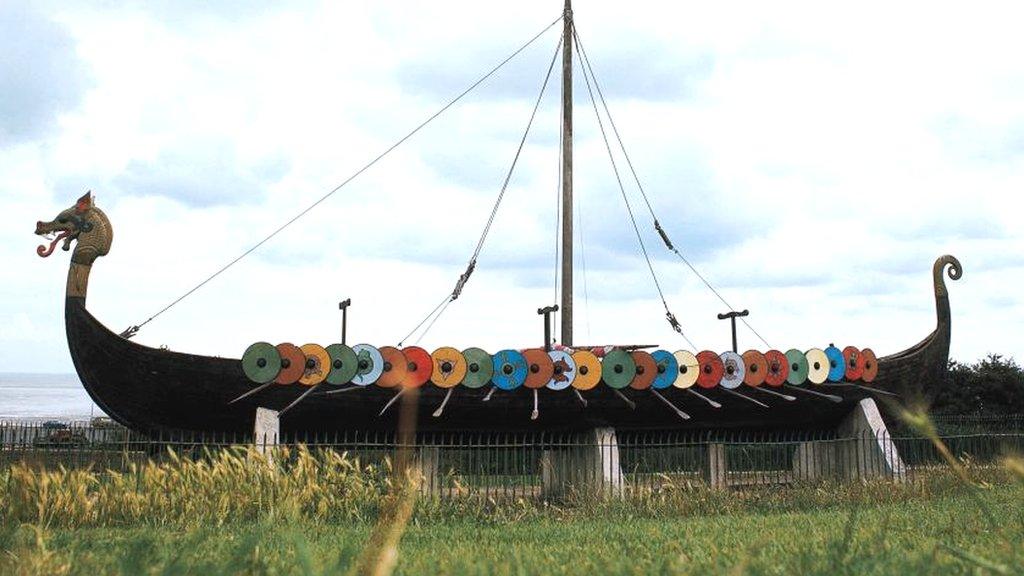
- Published8 January 2023
